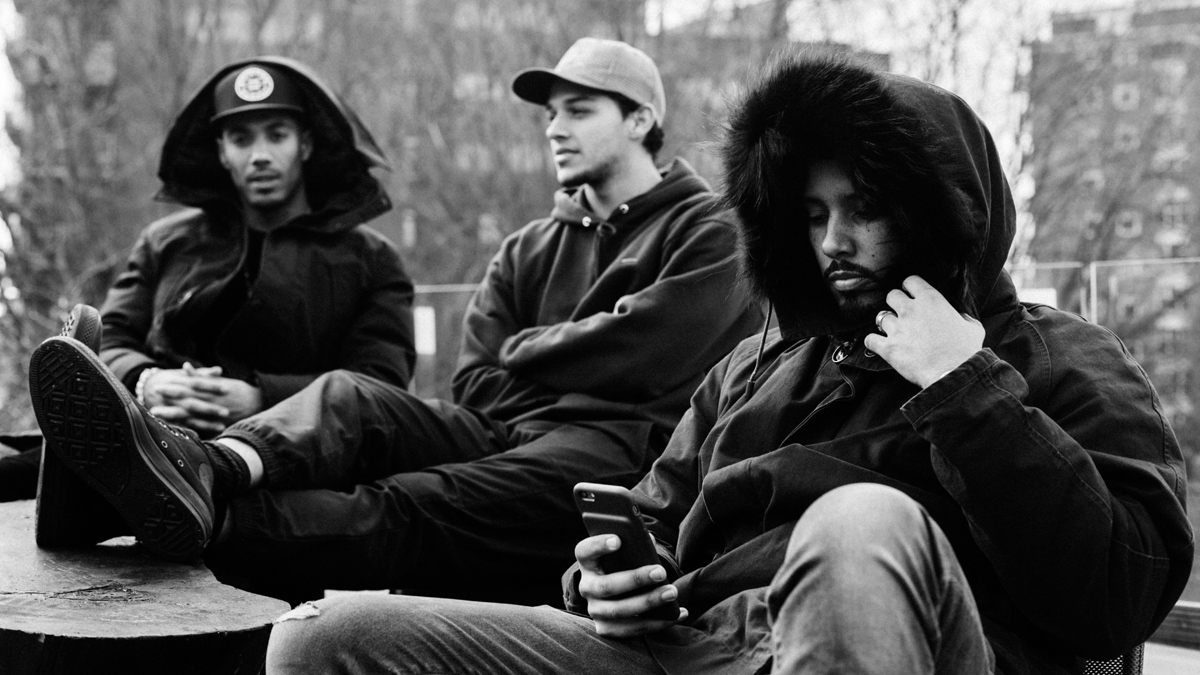Black Saint: 5 things we’ve learned about music production
Advice from the up and coming UK collective

Want all the hottest music and gear news, reviews, deals, features and more, direct to your inbox? Sign up here.
You are now subscribed
Your newsletter sign-up was successful
UK collective Black Saint are poised to leave a significant stamp on 2017, with debut release Could You Love Me? racking up the streams and views.
Taking inspiration from the sounds of rare groove and soul and the pirate radio stations of the UK garage and jungle scene, the trio have also remixed Dua Lipa’s Blow Your Mind, and are currently popping up at venues and house parties around London.
We asked the guys to consider the 5 things that they’ve learned about music production; here’s what they came up with...
1. It’s all about the song
“I will say that a key factor in our own creative process is to first build a track that inspires great melodies and ideas. However, while it is important to ensure that an instrumental sounds as close to a hit as possible, there’s definitely a balance to be struck that allows room for the song to take shape.
“We always have to bear this in mind because certain elements of a track can throw off a good melody and make it difficult to come up with anything good, as there’s simply no room! Often, we’ve found that it’s good practice to hold back, as a good song can inspire ideas on the production that we never would have thought of.
“For us the production is simply the plates and cutlery, but the song is Nan’s home cooked food! Production styles and tastes come and go, but a great song is timeless!”
2. A good mix can make all the difference
“I once heard that Max Martin has Serban Ghenea [mixing engineer] mix all of his demos! While there’s no doubt that Max Martin knows what it takes to craft a hit record, it also speaks volumes as to how important it is that your songs sound the best they can, even at the demo stage.
Want all the hottest music and gear news, reviews, deals, features and more, direct to your inbox? Sign up here.
“Most of us can’t afford such a luxury; however, there are some great plugins that we can use on our mix bus that enable us to get that ‘finished’ sound. I find the Ozone suite by iZotope to be fantastic for this.
“I would also recommend building your track with your mastering setting on, as I’ve always achieved a better vibe to my tracks and mixes this way. There are also loads of tips and tutorials on YouTube that are well worth watching… we can never stop learning!”
3. Save as a channel strip
“Most Logic users out there probably already do this, but for anyone who doesn’t, it’s a simple yet useful process! This enables us to create our own kits and banks in Logic according to genre, song, year etc.
“Once we have the setting we like and have tweaked it to sound the best it can be, we save as a channel strip. This way, we can quickly find it again and re-use it in the future without fiddling about inside the plugin.”
4. Learn how to play (even basic) keys
“At school my instrument of choice was drums, and I went on to teach myself guitar and bass, but if I where to take advantage of that free time in my life again, I would have learned how to play piano.
“In our current climate, the keyboard is at the heart of all electronic production, and is vital when collaborating with others on something from scratch. It gives you the flexibility to work quickly and immediately on the song instead of having to spend time tinkering on the instrumental.
“I have always used my ear to craft chords and progressions, but a more confident grasp of the piano has helped to open up another level of creativity.”
5. Have integrity
“As a writer, there is often pressure to create whatever is currently popular; however, in truth, once we try to replicate what’s already out here, we're already behind.
“In our experience, although music is a business, it’s always better to make money by doing what is sincere, rather than fake what is sincere just to make money. Respecting the integrity of music is paramount, as it has the potential to positively or negatively inspire and shape lives, influence change and to live on long after us, so it’s important to think about this reality when writing.”

I’m the Deputy Editor of MusicRadar, having worked on the site since its launch in 2007. I previously spent eight years working on our sister magazine, Computer Music. I’ve been playing the piano, gigging in bands and failing to finish tracks at home for more than 30 years, 24 of which I’ve also spent writing about music and the ever-changing technology used to make it.